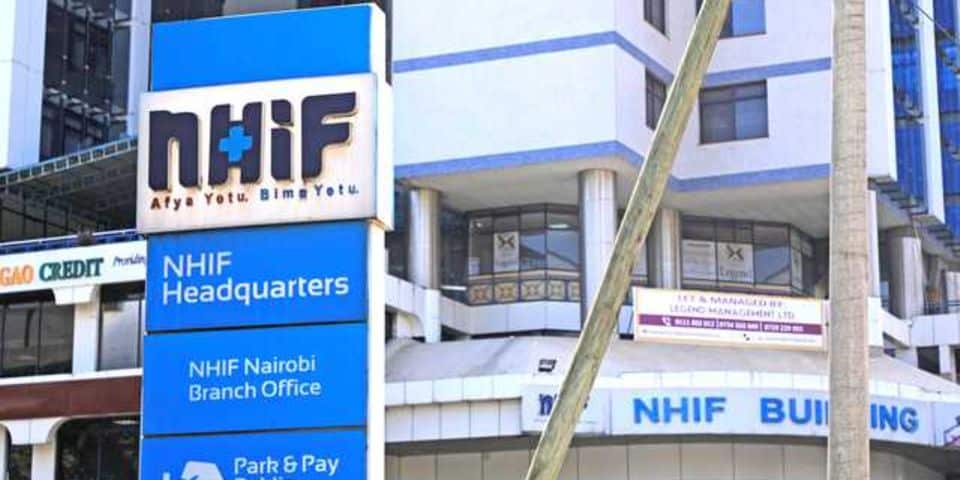Key takeaways
- On May 1, 2023 — Labour Day — Kenya’s President William Ruto announced changes to the National Health Insurance Fund (NHIF) contributions to increase access to affordable healthcare in Kenya.
- The NHIF is a government-run organisation that provides medical insurance to registered members and their dependents. Its mission is to provide universal health coverage (UHC) in Kenya by funding healthcare services for Kenyans.
- These changes could affect Kenyan Health Maintenance Organisations (HMOs). For instance, increasing the affordability and accessibility of healthcare for low-income individuals may increase the demand for the healthcare services and solutions provided by HMOs and healthtech startups in Kenya.
On May 1, 2023, Kenya’s President, William Ruto, announced changes to the monthly contribution to the National Health Insurance Fund (NHIF).
According to Ruto, starting July 1, 2023, low-income earners and self-employed contributors will pay KSh 300 ($2.18) rather than KSh 500 ($3.64). But those with higher incomes will contribute 2.7% of their earnings.
He stated that the changes are intended to improve the accessibility and affordability of healthcare. In addition, the new plan would ensure that patients receive care at hospitals close to their homes.
Ruto emphasised his desire to provide Kenyans with access to high-quality healthcare while highlighting that many citizens live in poverty due to mounting medical debt and that insurance will help to prevent relapse.
He also announced that the government would launch a voluntary programme to recruit 100,000 community health promoters to help provide healthcare to Kenyans at the bottom of the healthcare pyramid.
This move is consistent with universal health coverage, which ensures that all people have access to the full range of quality health services they require, when and where they need them, without financial hardship.
What is the NHIF?
The NHIF is a government-run organisation that provides medical insurance to registered members and their dependents. Its mission is to provide universal health coverage (UHC) in Kenya by funding healthcare services for Kenyans.
The NHIF is Kenya’s primary vehicle for financing universal health coverage.
In January 2022, the National Hospital Insurance Fund (NHIF) changed its name to the National Health Insurance Fund, citing the need to reflect its broader mandate of providing universal health coverage to all Kenyans, not just hospital services.
The NHIF also welcomes self-employed members or those who work in the informal sector. There are also options for retirees.
How does the NHIF work?
The NHIF obtains regular monthly contributions from its members, either through their employers or through voluntary payments for informal or self-employed workers.
The NHIF uses the contributions to provide members and their dependents medical care from accredited medical facilities.
The NHIF offers several benefits to its members through different programmes. For example, the SUPA cover is a comprehensive package that includes maternity, surgery, dialysis, oncology, specialised services, and outpatient and inpatient services.
Other programmes offered by the NHIF include Linda Mama, which provides free maternity care; EduAfya, which supports secondary school students; and the Civil Servants Scheme, which supports both civil servants and members of the armed forces.
At accredited health facilities, NHIF members can access these benefits by showing their NHIF cards or biometric identification. Members of the NHIF may also select their preferred outpatient facilities online or via USSD.
Besides, the NHIF processes claims from healthcare facilities and pays them back under predetermined rates and regulations.
Implications of the monthly contribution changes on HMOs
The Kenyan NHIF increases healthcare coverage and mandates that employers make matched contributions to the NHIF on behalf of their employees unless they provide an equivalent or better level of private health insurance.
Private health insurers or health maintenance organisations (HMOs) provide health insurance for individuals or groups.
A report reveals that only 20% of Kenyans have health insurance. A study shows that the 32 private health insurers collectively cover only 1% of Kenyans, and the NHIF covers 16% of the population.
It’s not news that many people can’t afford healthcare. Statista estimated that over 8.9 million Kenyans lived in extreme poverty in 2022, with the majority living in rural areas.
So, this move will give more citizens access to basic healthcare services.
“I believe the proposed changes are aimed at making healthcare more affordable and accessible to low-income earners, which could potentially increase the demand for healthcare services and solutions offered by healthtech startups and HMOs in the country,” says Ikechukwu Anoke, Founder of Zuri Health, a Kenyan healthtech startup.
This means that the lower NHIF contribution for low-income individuals may reduce the cost of healthcare for this group of people. Consequently, HMOs might see an increase in the population of low-income earners seeking healthcare coverage.
But if customers choose the NHIF over private health insurance companies, especially if it offers comparable or better benefits at lower costs, HMOs risk losing those customers.
HMOs may need to work with the NHIF to offer supplemental or complementary services to their clients, such as preventive care, management of chronic diseases, or specialised care.
For example, the NHIF will now cover patients with chronic conditions, like cancer and kidney failure, without restriction, reducing the financial burden on families.
Additionally, as more Kenyans access healthcare through NHIF, there may be an increase in demand for healthcare services, presenting an opportunity to explore how to use technology to improve healthcare delivery, such as through telemedicine and eHealth solutions.
Currently, 149 startups in Kenya offer digital healthtech solutions, including affordable healthcare, online pharmacy, ambulance booking, genomics, point of sale management, remote monitoring devices, and medical concierge.
The changes to NHIF contributions could lead to an increase in more innovative and affordable services designed specifically for low-income earners. This might entail developing affordable mobile health applications, telemedicine platforms, or solutions for financing healthcare tailored to their needs.
Besides, HMOs may have to compete with the NHIF for quality healthcare providers, who could prefer to contract with the public health insurer if it offers better payment rates and conditions.
Moreover, HMOs may have to adjust their premiums and benefits to match or exceed the NHIF standards, retain their clients, and attract new ones.
Concerning high-income earners, Anoke believes, “The increased fees for high-income earners may lead to a reduction in the number of people enrolled in NHIF, which could negatively affect the revenues of healthtech startups and HMOs who depend on the NHIF payments.”
Implementing a percentage-based contribution for high-income earners may necessitate the development of more specialised insurance plans by HMOs to address their specific needs and income levels.
High earners might look forward to more extensive coverage or additional value-added services in exchange for higher contributions. So, HMOs could look into cutting-edge products created for this market segment to differentiate themselves from the NHIF.
The modifications to NHIF contributions may have an impact on HMOs’ finances. They’d have to reassess their revenue projections and financial models in light of the potential shift in enrolment patterns and contribution levels.
They might need to adjust their cost structures, negotiate with healthcare providers, and boost operational efficiencies to maintain sustainability and profitability.
What has happened since President Ruto’s announcement?
On May 3, 2023, the Kenya Medical Practitioners, Pharmacists, and Dentists Union (KMPDU) disapproved of Ruto’s proposed changes to the NHIF.
Davji Atellah, KMPDU Secretary General, said that the President could not claim that increasing salary deductions from Kenyan employees will increase the fund. He said that workers expect an increase in their salaries, not deductions.
On May 13, 2023, private hospitals said the government owes them KSh 12 million ($87,2700). Because the debt has been piling up since last year, they won’t treat patients with NHIF cards until they receive a substantial payment from the government-run health insurer.
Some affected hospitals have a comprehensive cover agreement with the fund, which entitles patients to treatment without paying a cent to the hospital.
However, on May 15, 2023, the NHIF warned its contracted hospitals to avoid turning away patients due to bill defaults.
While acknowledging that many hospitals were not serving patients due to concerns that they would not be able to pay their bills, the NHIF warned that such health facilities risked being delisted for breach of contract.
What does this mean for HMOs?
If this trend continues, Kenyan HMOs and other healthtech startups could seize the opportunity to provide more affordable health insurance plans to get more clients and remain relevant.
According to Anoke, “The impact of these changes on healthtech startups and HMOs in Kenya will largely depend on their target market and the type of services they offer.
“Those that can adapt to the changes and provide affordable healthcare services to low-income earners are likely to thrive, while others may need to adjust their business models to remain competitive.”











